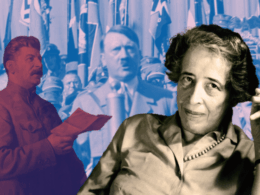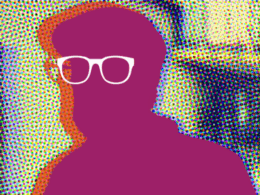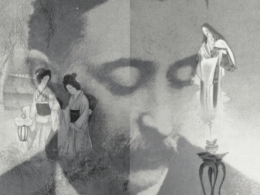Released this spring, Library of America’s collection Richard Hofstadter: Anti-Intellectualism in American Life, The Paranoid Style in American Politics, Uncollected Essays 1956-1965 gathers together an indispensable historian’s essential works on the irrationalism, demagoguery, and conspiratorial thinking that have long influenced American politics and culture.
The pertinence of Hofstadter’s preoccupations to the contemporary American moment can hardly be overstated: In the last few months alone, for instance, New Yorker writers Jelani Cobb, Luke Mogelson, and David Remnick have all cited Hofstadter’s work as a touchstone for making sense of events in 2020.
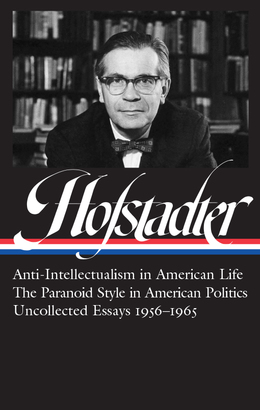 |
| Richard Hofstadter: Anti-Intellectualism in American Life, The Paranoid Style in American Politics, Uncollected Essays 1956–1965 |
The editor of LOA’s Hofstadter volume is Sean Wilentz, George Henry Davis 1886 Professor of American History at Princeton University. His many books include The Politicians and the Egalitarians: The Hidden History of American Politics (2016); Bob Dylan in America (2010); and The Age of Reagan: A History, 1974–2008 (2008). The Rise of American Democracy: Jefferson to Lincoln (2005) was awarded the Bancroft Prize, and he has received two Grammy nominations for his writings on music. Earlier this year, Wilentz participated in Library of America’s webinar on the anthology American Conservatism: Reclaiming an Intellectual Tradition with that book’s editor, Andrew J. Bacevich.
Via email, Wilentz answered our questions about Hofstadter and the unmistakable relevance of his work in 2020.
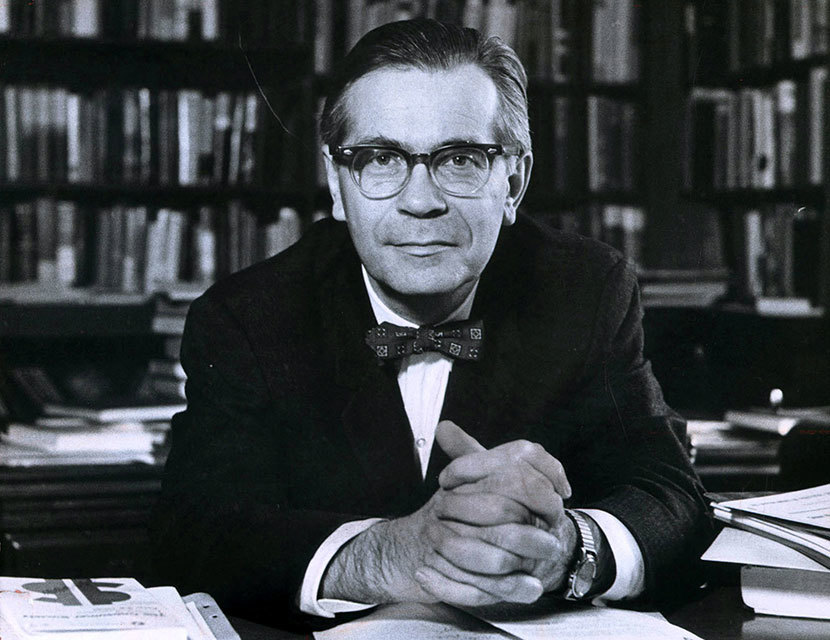
Library of America: The new Library of America volume argues for Richard Hofstadter’s prescience in understanding the role of resentment, suspicion of elites, and conspiratorial thinking in American political culture. Why do you think Hofstadter was alert to—and interested in—these tendencies ahead of other historians?
Sean Wilentz: Richard Hofstadter, after starting out in the Marxist ’30s, became increasingly alert to the myths and irrationalities of American politics and culture. Other historians in his cohort—like his colleagues Kenneth Stampp and Frank Freidel during their early teaching days together at the University of Maryland—were blazing new trails but were involved in more familiar scholarly pursuits. In grappling with ideas and politics as they did not, with a certain Mencken-like acerbity, Hofstadter quickly detected self-serving fables and folly, though without dismissing the value and honor of his subjects.
In The American Political Tradition, published in 1948, he debunked the leftist and liberal myths surrounding mainstream figures from the Founders through FDR. After McCarthyism hit, he turned to the anxieties and obsessions of popular movements and cultural trends, as examined first in Anti-Intellectualism in American Life and then in The Paranoid Style in American Politics.
He was not the only person preoccupied with these themes, especially the latter. But Hofstadter stood out as the historian: most of the others were social scientists like Daniel Bell, Seymour Martin Lipset, and David Riesman, many of whom were working on or around Morningside Heights. The milieu had something to do with Hofstadter’s interests, certainly. But so did Hofstadter’s early and abiding reaction to the Progressive generation of historians that preceded him, especially Charles A, Beard, with its weakness for a kind of reductive materialism.
Likewise, his undergraduate training in philosophy at the University of Buffalo and his later engagement with literary critics ranging from Edmund Wilson to his close friend Alfred Kazin gave him an enlarged view of political thinking and political culture. But it was his particular creative disillusionments in the 1940s and 1950s which I think most heavily influenced this side of his writing.
LOA: One of the standalone pieces in the LOA volume is a 1959 radio lecture for the BBC that was Hofstadter’s first public statement on the “paranoid style.” Where does this idea have its roots in his thinking, and how did it evolve after this talk?
Wilentz: That radio talk came to my attention thanks to the generosity of John Summers, former editor-in-chief of The Baffler and a wonderful intellectual historian, who put me in touch with another fine historian, Andrew McKenzie-McHarg, who had discovered the manuscript in the BBC archives while completing his own important research on Hofstadter. It was interesting to see, first, how long the phrase has been taking shape in Hofstadter’s mind, well before the eruption of the Goldwater movement with which it is not surprisingly linked. That early formulation had to do with his reactions to McCarthyism and then his work on the far right undertaken for the Fund for the Republic in 1957. At the outset, the idea had a pretty specific connection to right-wing movements, as the radio script makes clear. It was only later that Hofstadter broadened the historical context to include conspiratorial thinking dating back as far as the anti-Jeffersonian fearmongering about the Bavarian Illuminati, or a little later the Anti-Masonic movement.
In its original formulation, the “paranoid style” was mainly a right-wing phenomenon; the concept evolved, in Hofstadter’s mind, into an American phenomenon. This, of course, leaves open to question how peculiarly American it really is, something pertinent today with the effusion of conspiratorial thinking across, at the very least, all of Europe and in Russia. Hofstadter stated clearly that the style has been international and he pointed to the studies by Norman Cohn on medieval and early modern millenarians, but he left it to others to develop broader connections. I do think, though, that he would have insisted on certain identifiably American traits to his own subject, stemming in part from the forceful presence of evangelical Christianity and the cult of material success in the first significant modern experiment in democratic government. A cosmopolitan mind, Hofstadter was always fascinated by American peculiarities. This recurred, for example, in his later reflections on violence in American politics, which I hope to include in a subsequent Library of America volume.
Toward the end of his life, notably in his Columbia commencement address in 1968, Hofstadter remarked at least implicitly on the anti-intellectualism of the student left, a difficult thing for him to do as he basically agreed with the protesters about the war in Vietnam and about the deceptions of corporate liberalism, and so forth. Indeed, the protesters included some of his own prized dissertation students. But I am confident he would have been withering about “woke” political culture today, not just in higher education but in journalism and the foundations, speaking very much from the left, not the right. The conviction that shutting down unethical thought should supplant free inquiry—or that hunting down heresy is the same thing as vindicating truth—epitomizes the conspiratorial, anti-intellectual style that Hofstadter decried. So does the hard–left conceit that freedom of study and expression is a liberal pretext for the perpetuation of white supremacy and other forms of oppression. Sometimes I wish Orwell were still around; other times, I wish Hofstadter were.
But this leads to another point. I’ve read some criticism of the works in our volume—the works themselves, not the volume—as the product of a proud egghead who failed to account for the great power of Americans intellectuals at precisely the time he was writing, and who was at heart a Mandarin snob who ridiculed ordinary Americans. This echoes standard attacks on Hofstadter I used to hear in the late 1960s, from the left as well as the right, and it’s misinformed. Anti-Intellectualism and Paranoid Style arose out of the 1950s, a response, first, to McCarthyism and, second, to the intellectual dreariness of official politics and conformist culture during the Eisenhower–Nixon years. No one was more aware than Hofstadter of the intellectual ferment of the writers around Partisan Review or, a bit later, the New York Review of Books—he was part of that ferment. It was perfectly possible to see the advent of, say, Arthur Schlesinger, Jr., and, later, Henry Kissinger in the White House and still see intellectual life as embattled against the main lines of the culture. (Hofstadter’s pal Alfred Kazin interviewed President Kennedy and then wrote an unflattering portrait of him in The American Scholar, to Schlesinger’s embarrassment; I’ve always thought Kazin’s mordant take on JFK, the supposed intellectual’s president, would have run close to Hofstadter’s take too, though without in any way disowning Kennedy.)
Hofstadter did have his snooty side—I recoil, for example, from his snarky putdowns of the Beats in Anti-Intellectualism—and there are parts of his writing, say on American evangelicalism, that are one-sided. As another of his close friends, the great historian C. Vann Woodward, remarked, Hofstadter was a man of the city who had a hard time taking rural America seriously; and Woodward was forever telling his friend he had gone too far. But really: this part of his work, the part in this volume, lives because it got hold of a strain in our political culture that has fatally blossomed like evil forests in the years since his death, running in one channel from McCarthy (and Roy Cohn) through Nixon (and Roy Cohn), and in another from Goldwater to Reagan, culminating in the Tea Party, QAnon, and Trump (and Roy Cohn). If it took a stuck-up anti-populist egghead to do that, I’d say we need more of them, although the description is also unfair as far as Hofstadter himself is concerned.
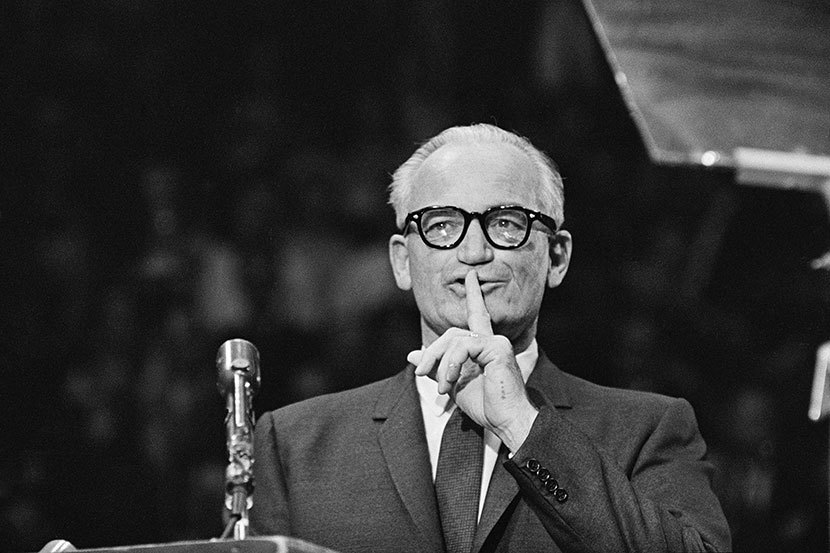
LOA: First-time readers of Anti-Intellectualism in American Life and The Paranoid Style in American Politics may wonder whether Hofstadter offers any prescriptions for countering the forces of irrationality and ignorance he diagnoses so meticulously. Did he see that as part of his role as a widely read historian and public intellectual?
Wilentz: I can’t offhand say what such a prescription would have been, other than insisting that the universities (as oases of free inquiry and expression) resist every temptation to conflate either popularity or dogma or political righteousness with enlightenment. Although he took a deep interest in public affairs, Hofstadter was not drawn to policy prescriptions or the exercise of power in the way that, say, Schlesinger was. He enjoyed his exceptional reputation, but had no appetite for the celebrity than can some with political activity. As far as that goes, Hofstadter was more of a public-spirited private intellectual than what today gets called a public intellectual. Apart from supporting this or that political campaign, I don’t think he usually saw much of a role for himself, not because he was either too arrogant or too shy but because he respected the limits of what he knew and did best, which took up more than enough time and was more than enough to contribute.
Twenty–odd years ago, I was writing a piece on Congressman John Lewis, who told me about the contents of the backpack he was wearing on Bloody Sunday in Selma in 1965. They included two books, one of which was The American Political Tradition. I think that would have made Hofstadter proud. And Hofstadter wasn’t such an egghead that he abstained completely from public protest—for shortly after Bloody Sunday, he joined the successful march from Selma to Montgomery led by Martin Luther King, Jr. For the most part, though, Hofstadter’s study and his Columbia office were his bully pulpit.
The greatest exception came with Barry Goldwater. In Goldwater, Hofstadter saw something abnormal and menacing, for reasons worth recalling today:
Early in the campaign, Barry Goldwater established a firm image of himself as predictably unpredictable: no one can tell where the audacious veerings and swoopings of his mind will take him, what bizarre new sallies he will launch, what vast intellectual retreats he will find it necessary to undertake without acknowledging he has budged an inch.
Today, those veerings and swoopings appear statesmanlike compared to the gyrations of the incumbent, a line of connection and development I hope historians of the Trump presidency will consider. By including so many of the pieces he wrote on the Goldwater campaign in the Library of America volume, I have hoped to underscore how much Goldwater shook Hofstadter. When he felt called upon, he could be as public an intellectual as any other. And in a different way, he spoke up in 1968 when, with the university he loved shaken to its foundations, he took up the difficult task of expounding and defending the fragile ideals for which it stood.
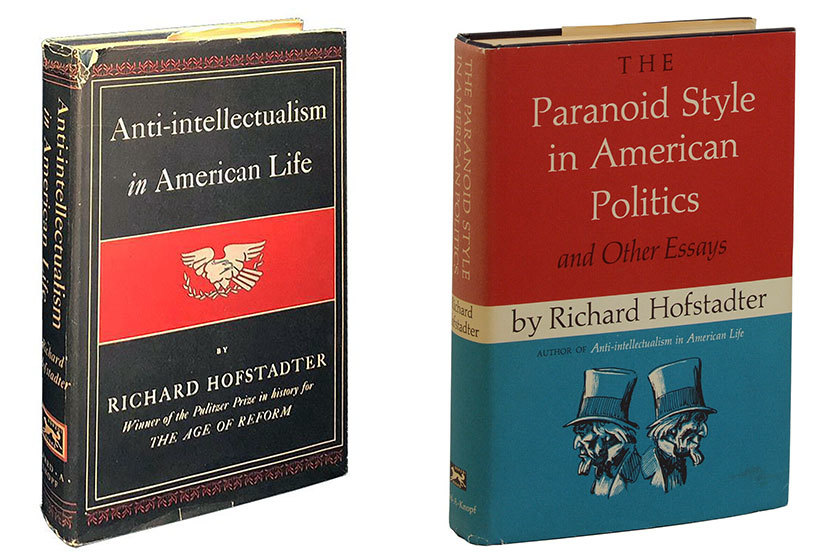
LOA: What can you tell us about the style of these books? We note that the literary critic Alfred Kazin in his journals cited Hofstadter as an “amazingly adroit and elegant mind.”
Wilentz: At its best, Hofstadter’s writing was a model of putting across complicated ideas lucidly. His most trenchant prose came, I think, in The American Political Tradition, where his assault on pieties led him to come up with some striking lines, like his description of mainstream American politics as “a democracy in cupidity rather than a democracy of fraternity.” This is still a young historian’s style, its charm coming in its aphoristic skewering, but it doesn’t always hold up so well over the long run. Hofstadter no doubt enjoyed describing Lincoln’s Emancipation Proclamation, for example, as a document with “all the moral grandeur of a bill of lading”; the line has certainly stuck in my mind. His point was that, although Lincoln’s antislavery convictions were sincere, he was more of a follower of public opinion than a leader, which, to be sure, was an estimable quality given the times. But in chipping down Lincoln’s legend, that jab missed the point: the moral grandeur of the Emancipation Proclamation, its genius, lay precisely in its dryness, turning the Union military into an revolutionary army of liberation without in the slightest disturbing his constitutional or military obligations as president of the United States. (I guess in fairness it needs saying that Hofstadter was not the first major historian to be outwitted by Abraham Lincoln; nor would he be the last.)
Hofstadter’s more mature style was less edgy and given more to savoring multiple ironies. Anti-Intellectualism may be his least elegant book in the sense Kazin meant: sprawling, episodic, lacking a clear thesis. Its power comes more in its evidence than in its analysis. Yet there is strong writing on every page, as in his description of liberal intellectualism as a practice that “accepts conflict as a central and enduring reality and understands human society as a form of equipoise based upon the continuing process of compromise.”
With Paranoid Style and many of the essays, especially the ones on Goldwater, Hofstadter was writing, I think, with more immediate political purposes. I only ascertained after I’d finished editing the volume the exact date on which he delivered in Oxford the version of “Paranoid Style” that became the basis for the first published version: November 21, 1963, the day before the world changed utterly. (Had I known earlier, I’d have put that in the volume’s chronology.) I detect a greater sense of urgency in these writings. Gone are the gestures to Critical Theory and mainline social science: he is truly alarmed by what he calls “the arena of uncommonly angry minds” that had once again come to dominate American politics. Yet he never loses control either of his materials or his prose, as when, for example, he summarized the fevered conspiracy theorizing at the heart of the paranoid style: “The paranoid spokesman sees the fate of this conspiracy in apocalyptic terms—he traffics in the birth and death of whole worlds, whole political orders, whole systems of human values. He is always manning the barricades of civilization. He constantly lives at a turning point: it is now or never in organizing resistance to conspiracy. Time is forever just running out.”
LOA: You’ve also included a powerful memoir fragment about Hofstadter’s experience of the Great Depression, which he characterizes as “a reality so pervasive that it shaped all our thinking about history and all our experience of literature.” What were some of the intellectual and psychological effects of living through the Depression for him?
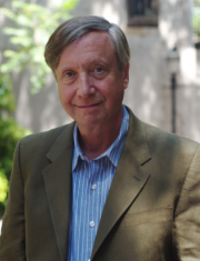
Wilentz: I included that fragment as the very last piece in the book in part to underscore what I said here at the outset about the lasting effects of the Great Depression on him and an entire generation of historians, and not just historians.
Obviously, there was no one experience of the Depression. For Hofstadter, leaving Buffalo for Manhattan and Brooklyn Heights, falling in with so many brilliant young writers, not least his first wife, Felice, it could only have been intellectually fierce and inspiring. First and foremost, there was the experience of what Edmund Wilson, borrowing from George Bernard Shaw, called “the Heartbreak House of capitalist culture.” (In the fragment, Hofstadter quotes a long passage from Wilson, to convey the emotional life of the era.) Then came Marxism, then his break with the Communist left, then his arrival at a kind of American liberalism at a time, he wrote, when “the American liberal–progressive tradition would have to change too.” All his books, he said, “have been affected by this impulse to reevaluate American liberalism, as well as to understand the failure of older American individualism.”
What he came to discover in the 1950s and early 1960s were challenges to American liberalism, mainly but not only from the right, challenges deeply rooted in our history, that threatened the foundations not just of liberal politics but democracy itself—just as, I think it’s safe to say, they threaten us today, many times over.
